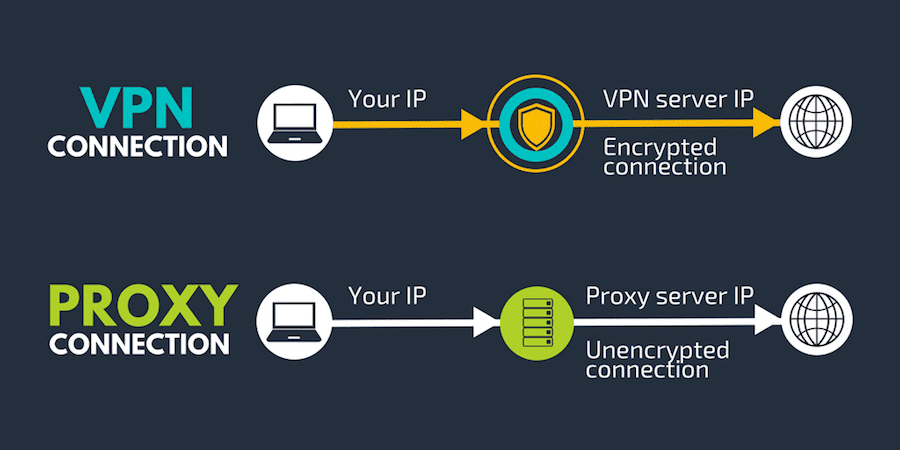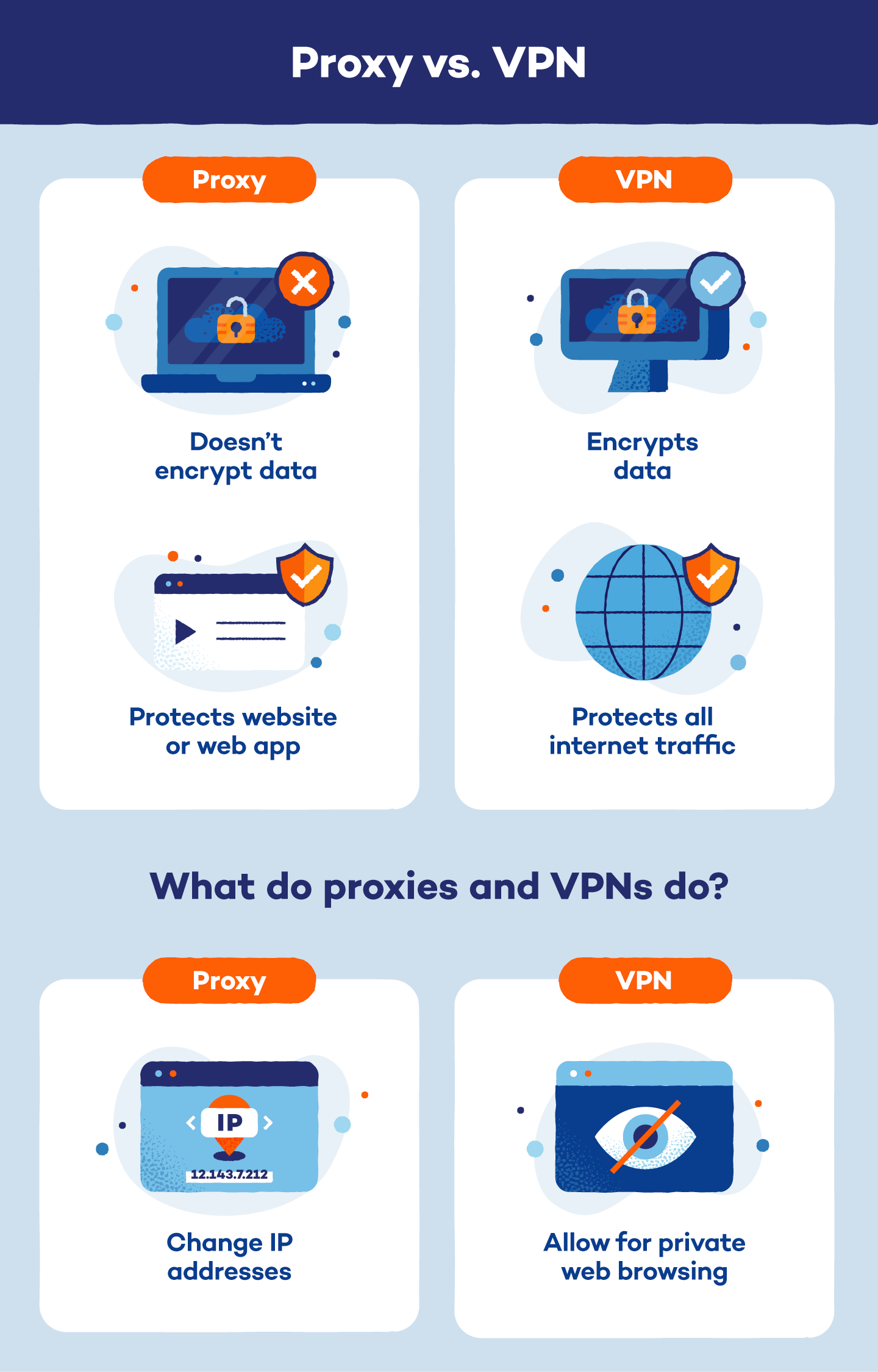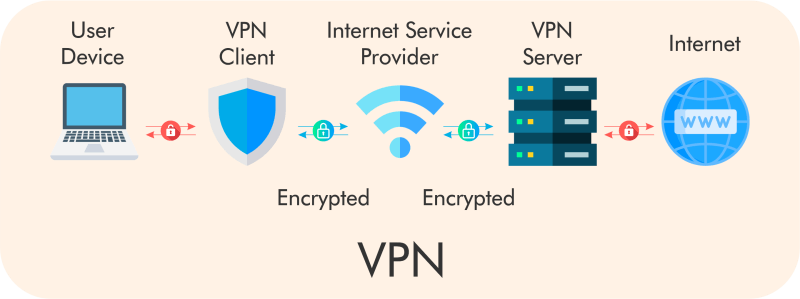Featured
Table of Contents
What Is The Difference Between Proxy Vs Vpn Vs Tor?
SOCKS5 is not the like a VPN. Rather, SOCKS5 is a kind of proxy server that's normally used for online video gaming, sharing files or video talking on a single website or app. VPNs, on the other hand, secure all web activity across all websites and apps.
For this reason, some users pay for a private proxy server which limits the variety of users that access it, accelerating your connections. Proxies are also susceptible to security exploits: they can be open to attack, permitting the bad guys to infiltrate networks or take private information. Some proxies can still track (and shop) your surfing routines, along with taping usernames and passwords rendering that guarantee of privacy null.
VPNs utilize a regional customer to develop the connection to the VPN server, so any local CPU or memory problems will decrease the connections. VPNs are normally more expensive to utilize (and preserve) than a proxy server, and they are typically more intricate to manage. Much like proxy servers, VPNs can't guarantee privacy while browsing.
A VPN only guarantees an end-to-end encrypted connection if you use the HTTPS procedure when you go to a brand-new web address. Your information will be encrypted to the VPN, however from that point on, it might be unencrypted to the web server. For some sites, this might be irrelevant: an information-only website without any login or payment choices for example, but for any websites that require a login or online payments or any delicate data make sure the website is allowed to use HTTPS.
What Is The Difference Between A Vpn And A Proxy For ...
The greatest argument to use a VPN instead of a proxy is the total encryption for all traffic you get with the VPN. Dollar for dollar, a VPN is more safe than a similarly priced proxy. VPN companies maintain their own networks and you use their IP addresses for your connections.
Personal privacy and security matter these days, no matter if it's your business data or your own personal data you require to protect. Make certain you're investing time and money into the correct tools for your security objectives: both proxies and VPNs add an extra layer of security and personal privacy to your data.

If your issues are more around "what websites are my users hitting," a proxy server is a much better tool. To get the most bang for the buck (and to safeguard your information as a security-aware resident), register for a well-regarded VPN service. For the a lot of part, VPN services permit you to use servers in different areas to work around content limitations.

If you're concerned about your personal privacy when using the web, you may have thought about using either a VPN or a proxy server. Both increase the security of your web connection, however how exactly do they work, and how do they vary? If you are seeking to enhance your online privacy, it is essential to comprehend the distinction between VPNs and proxy servers to make sure you're choosing the ideal tool for the task.
Proxies Vs Vpns: What's Better In 2023
How they attain that and the extent to which they offer other personal privacy functions differs considerably. Generally, when web browsing, your computer links to a site directly and begins downloading pages for you to read. This procedure is straightforward. When you use a proxy server, your computer sends out all web traffic to the proxy.
VPNs work on the operating system level. As a result, your Web Service Service Provider (ISP) can't see what you're doing online just that you're linked to a VPN server.


While speeds differ from provider to supplier, VPNs are normally the much faster option. It isn't a great idea to utilize a totally free VPN service because they are limited in what they can provide and tend to mine your information. As a result, users tend to select paid-for VPNs, which provide greater information file encryption and are more safe.
This suggests that, in basic, VPNs tend to be the more expensive choice. VPNs deal with the operating system level and reroute all your traffic through a VPN server, while proxies work on the application level and just reroute the traffic of a particular app or browser. This suggests that VPNs encrypt all web activity, no matter site or app, while proxy servers just hide one website or app at a time.
The Difference Between Proxy And Vpn 2023 Pros & Cons
Proxy servers aren't just used to open particular websites. They can likewise be utilized for the opposite function. Certain companies companies, schools, or libraries or maybe parents may desire to set up a transparent proxy to obstruct or filter users' content when using the internet. You might have used a transparent proxy without recognizing it.
Latest Posts
How Does A Vpn Work?
10 Best Vpn Services Of 2023 - Top Vpns Rated By Experts
How To Keep Mobile Users Inside Your Corporate Vpn